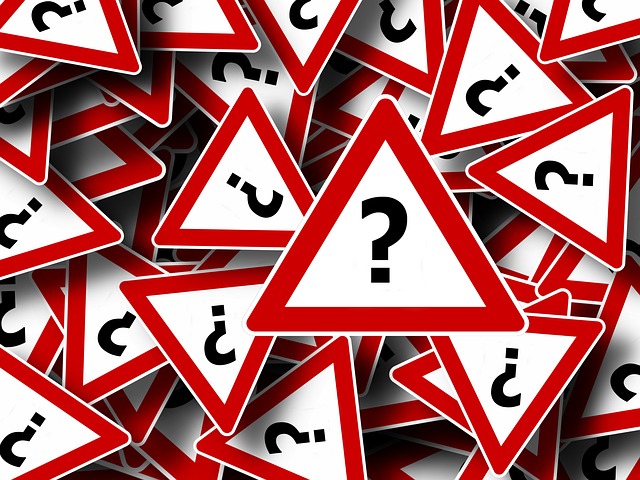I have one question
 When I teach small groups, a participant often raises a hand and says something like:
When I teach small groups, a participant often raises a hand and says something like:
A native speaker in the same context would be far more likely to use the indefinite article a than the numeral one.
Several major languages have the same word for the indefinite article and the numeral 1. For instance, the two English phrases a question and one question can both be translated into Spanish as una pregunta, and into German as eine Frage. But the two English phrases are different in meaning, and need to be distinguished in pronunciation.
First the meaning. We use the numeral one to express that a larger number is not meant: in many cases, one means ‘only one’. A journalist, or a lawyer in court, might say ‘I have one question’ – meaning ‘only one question, not the multiple questions you might have expected’. So if you don’t mean ‘only one’, you should probably say simply I have a question. This is why I began this post a participant often raises a hand, and not one participant often raises one hand.
The pronunciation difference is one of relative strength. The indefinite article is very weak, with the unstressed schwa vowel: I háve ə quéstion. Numerals are stronger: I háve óne quéstion. Here are the two phrases, first with the article (weak), then with the numeral (strong):
The audio clip at the top of this post falls between these two pronunciations and sounds rather odd.
Further note
The actual vowel in one depends on the dialect. In General American, it’s stressed schwa, wə́n. Traditional British dictionaries tell you it’s wʌ́n, but a common and equally ‘standard’ alternative has the LOT vowel, wɔ́n, rhyming with gone.


Hi Geoff! Hope you’re fine! I was reading the further note where you say ONE is more likely to be pronounced with the lot vowel (In BrE) – My question is… When you recorded yourself, did you pronounce it like that? Or with the strut vowel? Cheers!
Hi Pablo. Yes, I’m using the LOT vowel, which is characteristic of my native accent. To hear the difference, go to an online BrE dictionary with audio clips (Cambridge, Collins, Macmillan, Oxford) and compare one (all STRUT) with wan meaning ‘pale’ (all LOT). The fact that none of them list LOT for one even as an alternative (Longman includes LOT but brands it with the ‘non-RP’ icon) is a good example of how conservative British dictionaries are regarding pronunciation. Ironic considering how up-to-date they like to be with lexical items.
In my post on one rainy day I chose examples with STRUT so as not to confuse my readers. I’ll deal specifically with one in a future post.
There’s a question of accent here, not just phonemically, but phonetically. I (a GA speaker), like Pablo, did not realise you weren’t using STRUT, because your northern LOT really sounds pretty close to GA and GB STRUT. Since the northern accent moves STRUT ‘out of the way’ (higher), LOT can, as in French and German, become considerably centralised (I also hear French and German ‘short o’ as STRUT much of the time); whereas in Southern British it has acquired or retained a pretty extreme value. In GA, of course, it’s merged with PALM as fully open and thus moot.
k_over_hbarc at yahoo.com
Hi, thanks for commenting. Yes, my LOT in those clips is rather centralized, so I can understand the confusion, but I’m not using a distinctively northern accent. Most of my vowels, including LOT, fall within standard southern Brit territory. (To repeat, LOT in one is now mainstream SSB – increasingly it’s also heard in won, past of win, which I conservatively rhyme with fun. And many northerners say one with their unsplit STRUT-FOOT.)
There’s a lot of variability, but I’m not sure that high back STRUT encourages LOT to move away from the bottom right of the IPA quadrilateral. John Wells on northern short vowels (Accents, p. 356): “all five tend to be somewhat opener than in RP… The LOT vowel… is generally fully open: it is [ɒ], perceptibly opener than mainstream RP /ɒ/.” However northern LOTs are often quite unrounded, which makes them acoustically less peripheral; this might be what you have in mind.
To my ear the vowels of SSB common and German kommen are pretty similar, while French comme is considerably more centralized.
I don’t here dispute your account of what is now SSB. However, I assume you do have a high (schwa-like) STRUT, which counts as northern for the purpose of my illustration. This doesn’t force LOT to move, but certainly the absence of any other strong vowel in the [ɐ] area allows it to, and vowel shifts like that are very common.
In another post here (https://www.englishspeechservices.com/blog/morgen-a-suitable-case-for-treatment/) you directly compare German ‘kommen’ and ‘offen’ with SSB ‘common’ and ‘often’. I hear the English words as distinctly more peripheral; in other words, German ‘komm’ (and French ‘comme’) might pass for GA ‘come’ in speech, while the first syllable of that ‘common’ would not. As for your own ‘common’ I make no judgement.
My STRUT is variable, and I think my LOT (like most of my vowels) is SSB-type. Yes, neighbouring vowels can shift in related ways; but I’m not sure about STRUT and LOT, which in the north are traditionally far apart. If STRUT comes down into the centre of the vowel space for some speakers, we might perhaps expect it to push LOT out rather than pull it in.
Regarding the similarity/difference of the SSB, German and French ‘o’ vowels, which we’re hearing differently, in principle we could get an objective answer by comparing acoustic vowel charts of numbers of speakers. The vowel qualities I had/have in mind are not unlike those in the Google Translate voices of these three systems. Far from a perfect method of comparison, for sure, but here from Google are common, komm’, comme, with their initial parts:
This is getting into too much detail, I think, and if you wish to go even further you might e-mail me (if it belongs on the blog it would be in a new page). But here it goes; I analysed your samples in Praat using formants (I have accurately gotten the formants of all my vowels, hence the certainty about it) and repeated listening.
In the audio comparison you just posted, the English ‘common’ clearly has the vowel you write [ɔ]. The German ‘komm’ is just as clearly more centralised, nearly halfway in fact, and could reasonably be written [ɔ̈] for cross-linguistic comparison. The French ‘comme’, besides being longer, is harder to classify: the formants make it even more central, but I think there’s some unrounding too – perhaps [ʌ̈] would be adequate.
Your stressed ‘one’, run against those, showed (taking into account the slight formant differences between men and women) a most strong resemblance to the middle one, the German ‘komm’. The match is not exact; your vowel being slightly lower and less rounded, which matches Wells’s and your remarks on northern LOT vowels. It is at the same height as my [ɐ] STRUT. For a last test, I recorded myself speaking ‘I have one question’ with the same intonation as yours and directly listening to them both; the difference is clear when I already know it’s there, but quite subtle.
Yes, I think the BrE and German tokens are both kinds of ɔ while as you say the French token ‘is harder to classify’. But of course we can’t deduce too much from measuring single tokens from different voices (I think the Google ‘speakers’ are different).